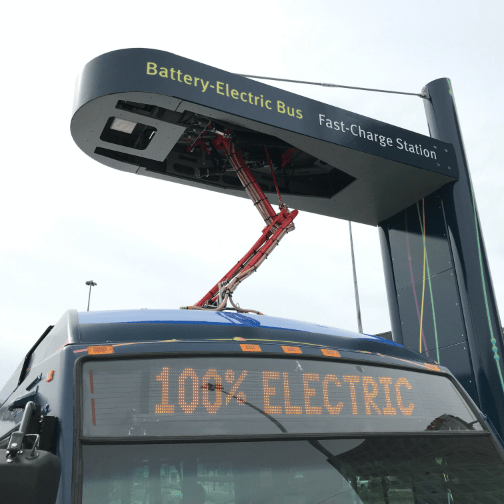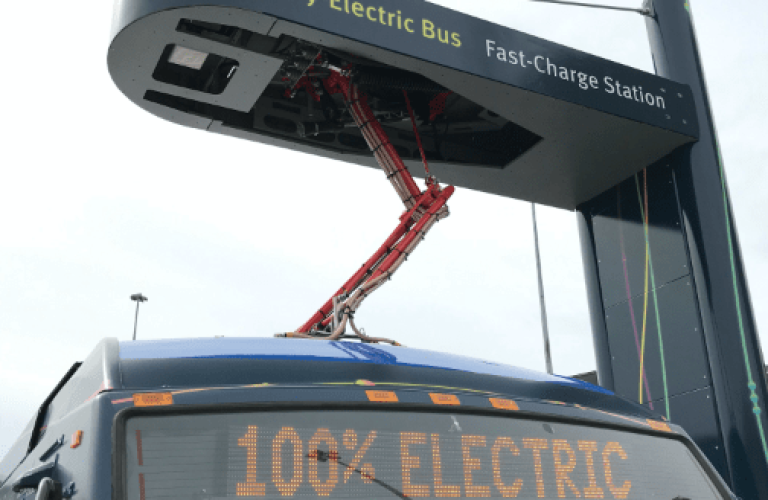
The public transit industry is a key player of global efforts to decarbonize and combat climate change. As transit systems transition their fleets to cleaner technologies, like battery-electric buses, they face both exciting opportunities and uniquely complex challenges. Recognizing the organizational impact of electrification, CUTA has developed the Battery-Electric Bus (BEB) Implementation Program to support transit professionals who are planning or already navigating electrification.
Electrification is more than a technology change. Electrification is an organizational transformation that demands careful consideration of service delivery, network planning, vehicle procurement, and infrastructure needs. CUTA’s BEB program is designed to provide a framework on how to implement BEBs into an existing transit system with careful consideration on how every role plays a key part in its success.
Speak with our training experts to learn how this course can fit your system.

This program is suitable for any public transit professional who is a decision maker or stakeholder in the electrification process at their organization. Examples include, but are not limited to, transit planners, schedulers, fleet professionals, infrastructure professionals, and any other adjacent roles. No prior knowledge is required for the program but a general understanding of electrification and transit operations is beneficial.
Course Structure
The entire program is taught in three virtual sessions lasting approximately 2-3 hours each spread over a week with guided facilitation. It encompasses theoretical components, project/group work, and interactive discussions facilitating networking opportunities among participants. Please note that the course is conducted in English only.
This course is taught in a virtual format with live facilitation. Learners are expected to have audio and visual capabilities to join online meetings and be able to interact live with course facilitators via microphone and video chat. In-person or hybrid can be offered as customized training options for groups.
All learners who participate in most of the virtual sessions will receive a digital certificate proving their completion of the course.
You can participate in Transit Ambassador training by organizing it at your own organization as a host or send learners to other organizations who are hosting. Training is scheduled on-demand. Get in touch with us today to organize training at your organization or inquire about when the next training might be elsewhere.
Yes. Learners who have completed the introductory course can register for the full course without having to pay twice, they only need to pay the difference in cost between the full and introductory course.
As an introductory course, this program will give you the general knowledge necessary to help you talk about transit planning and understand its importance and impact on its community. As a full course, new and experienced transit planners and adjacent professionals will get a refresher of the latest transit planning practices and theories through technical practice. Both programs will offer time to network and work with peers and the facilitators who will be in similar positions.
The program is offered two times annually with one offering in the spring and another in the fall/winter season. Registration typically opens 2 – 3 months in advance. You can register online through our registration pages. Groups or organizations with unique training needs can get in touch with us to coordinate trainings outside our standard schedule or arrange custom tailored training curriculums.